Archive
2022
KubaParis
If You Put the Question in Wrong, Will the Answer Come Out Right?
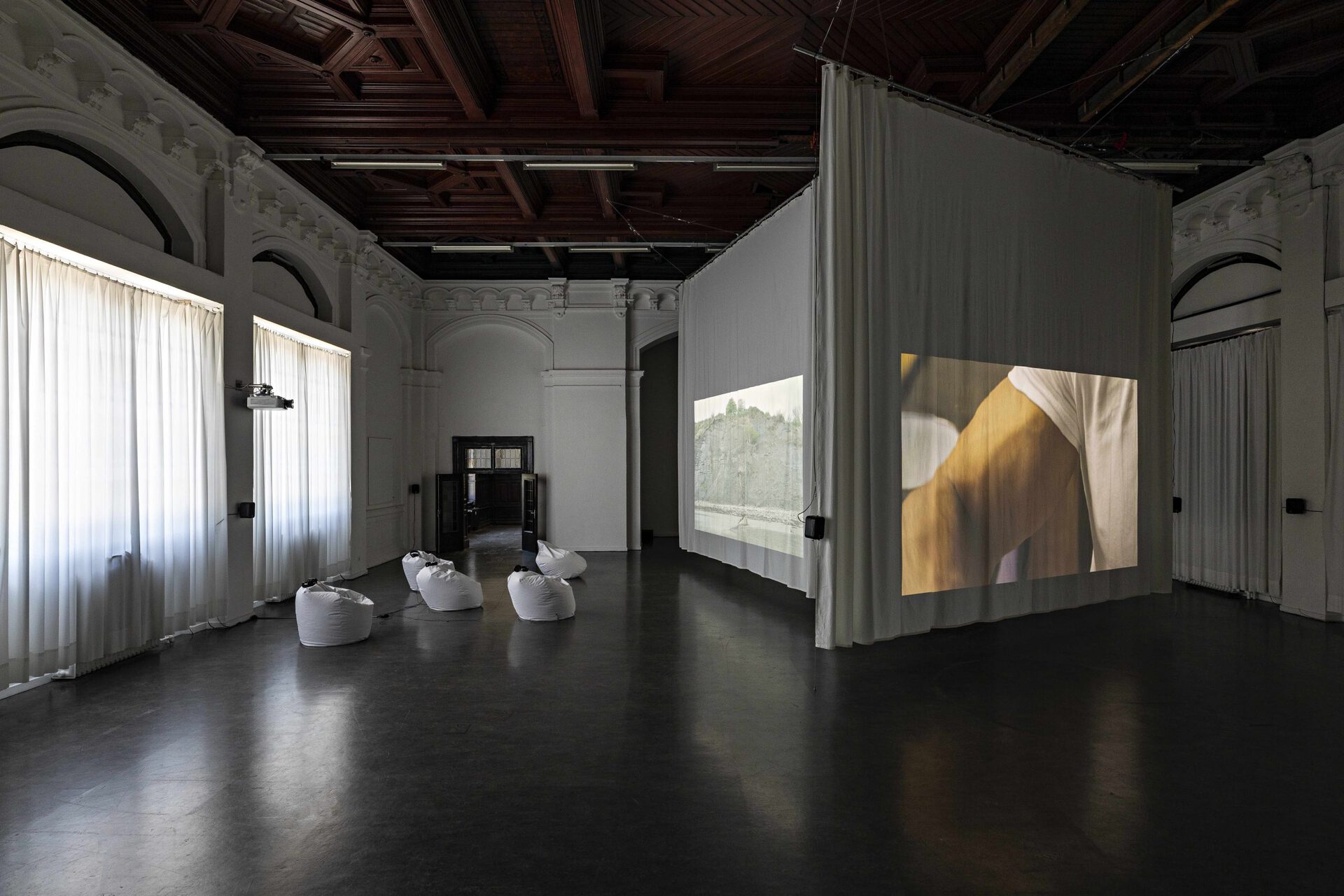
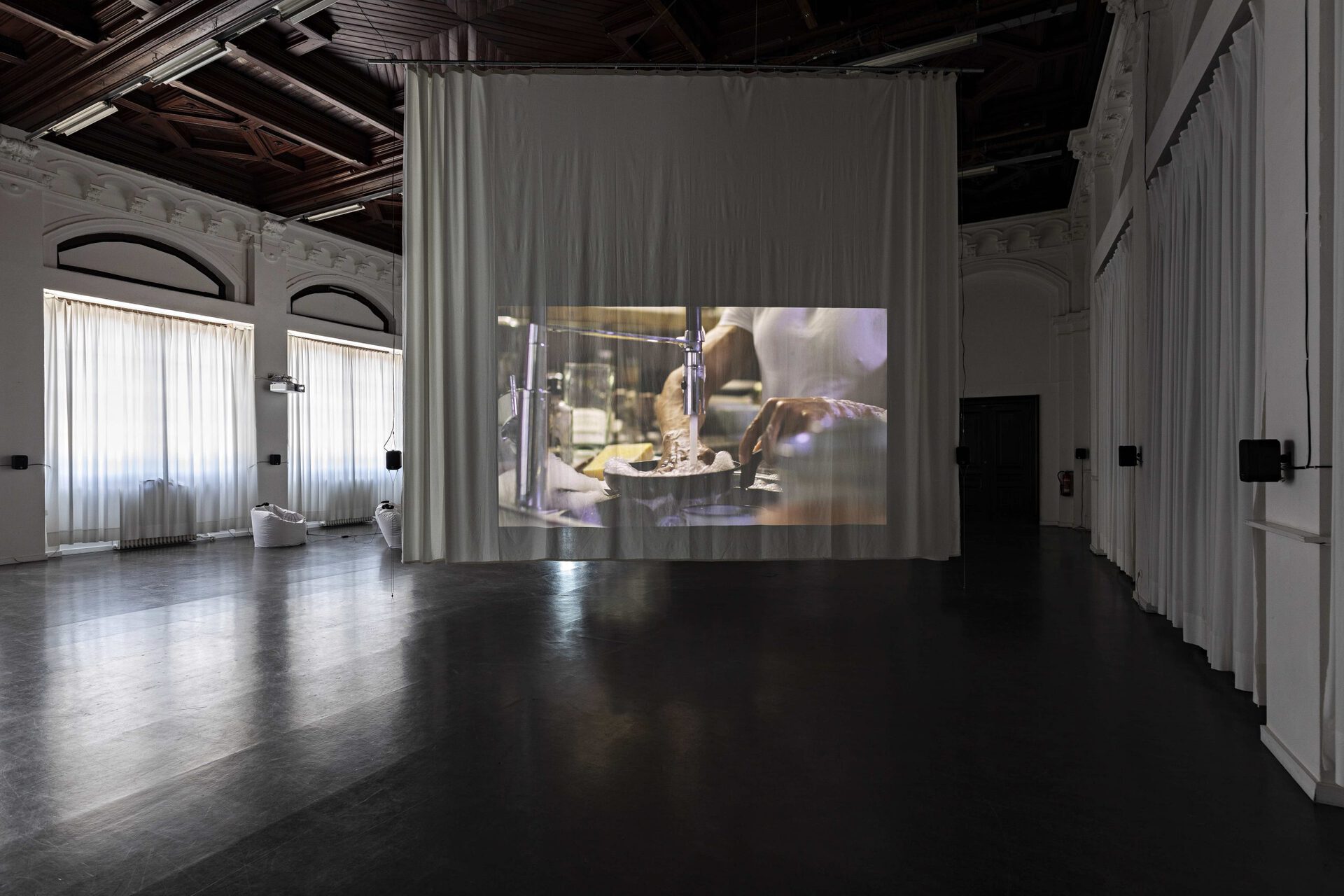
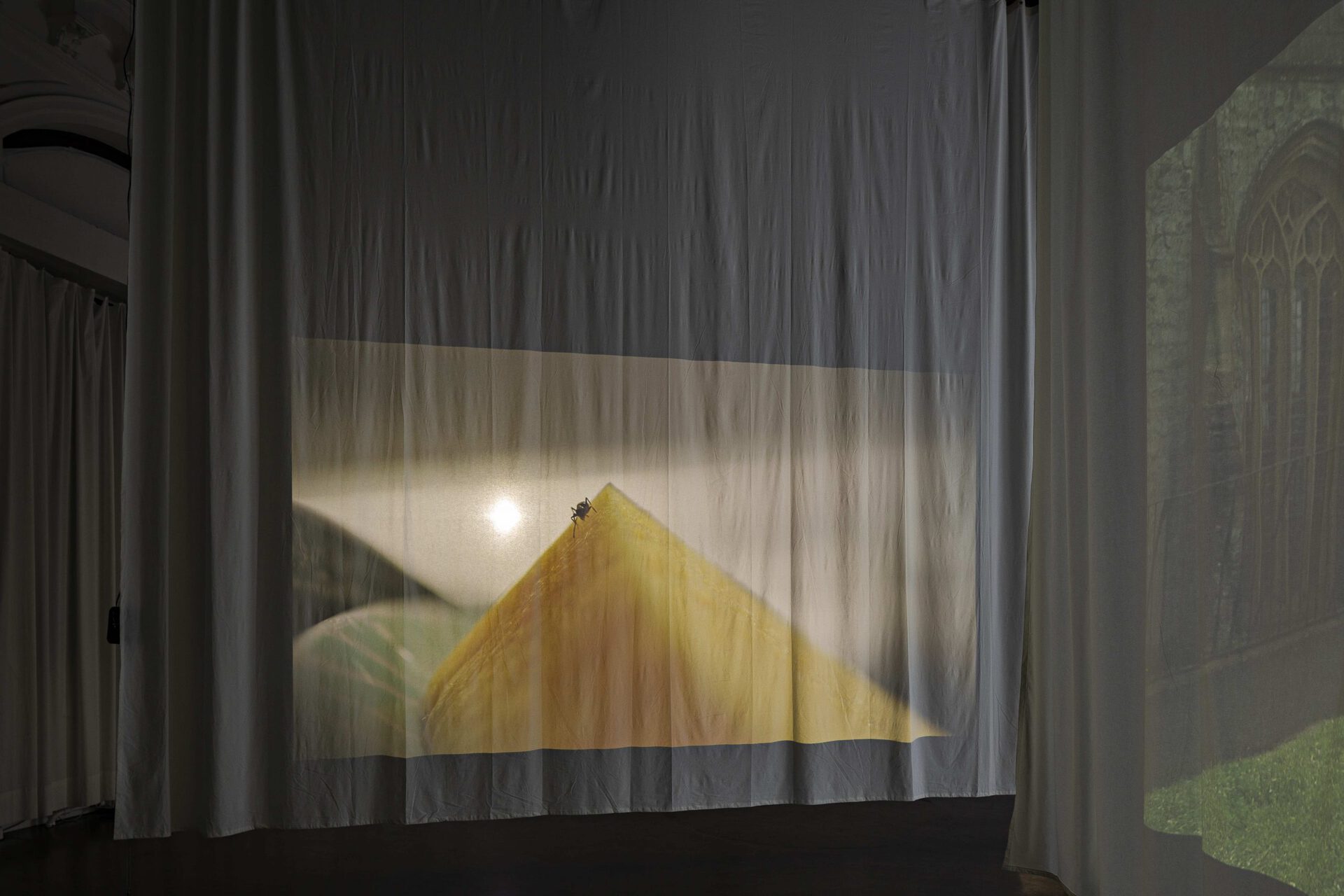
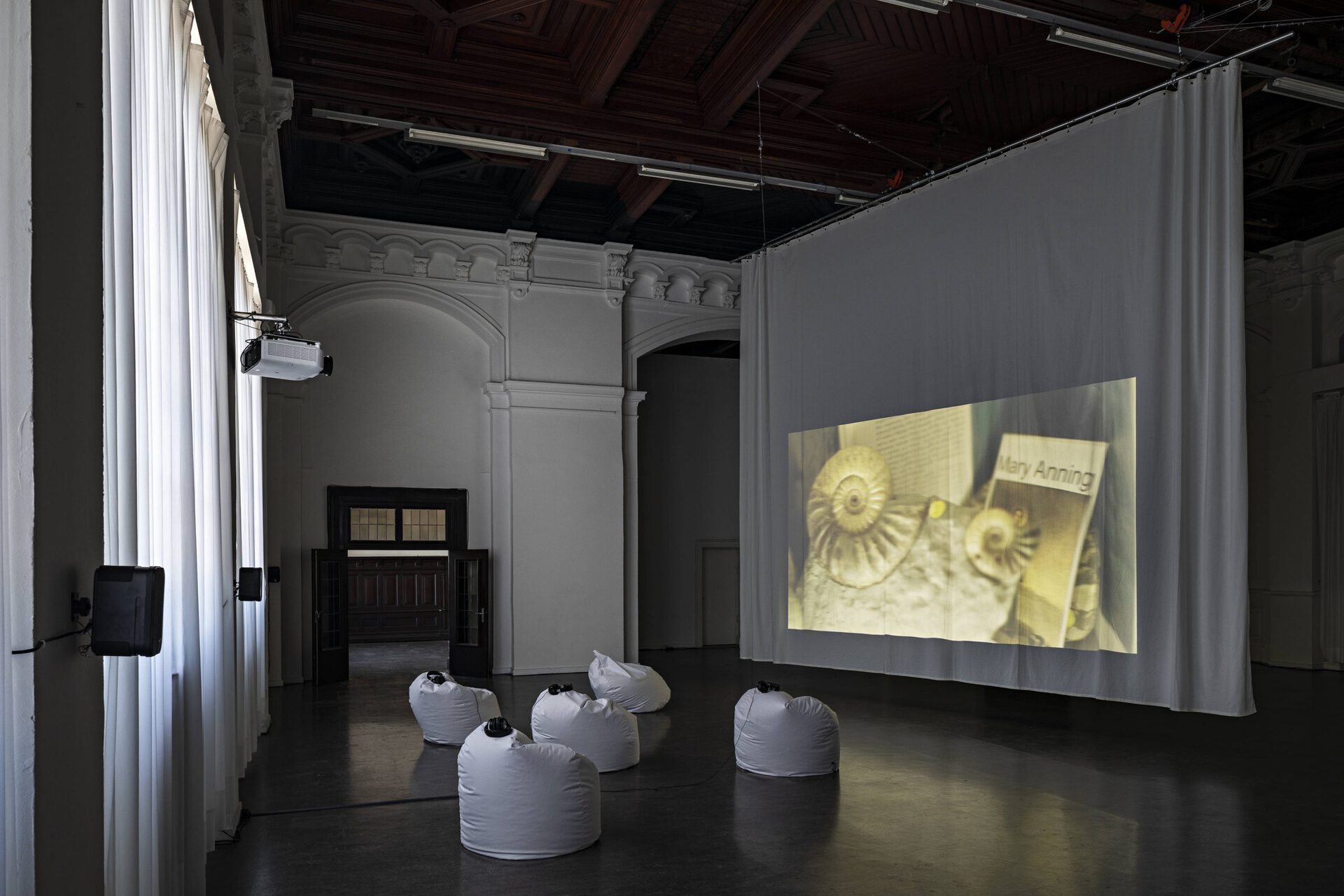
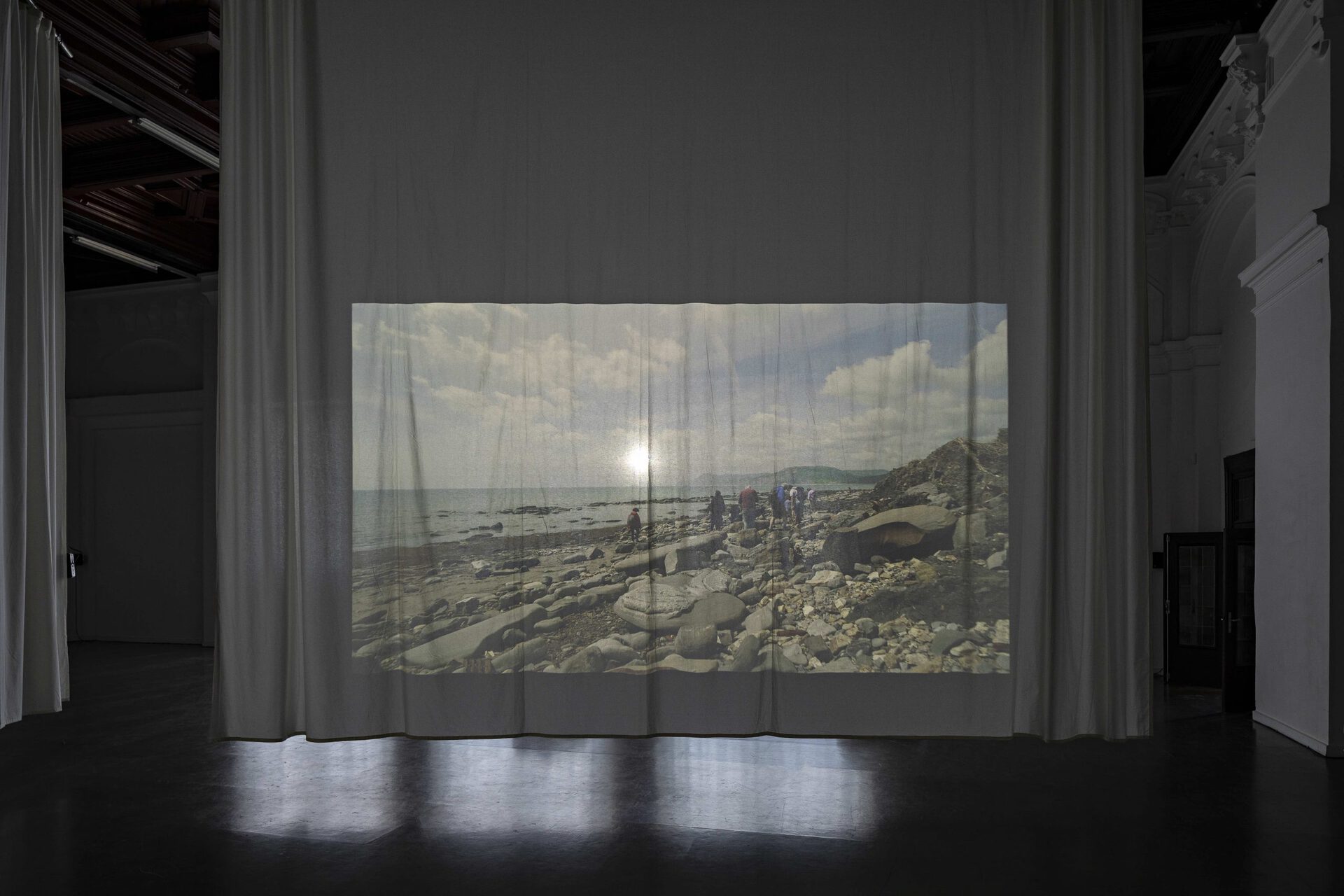
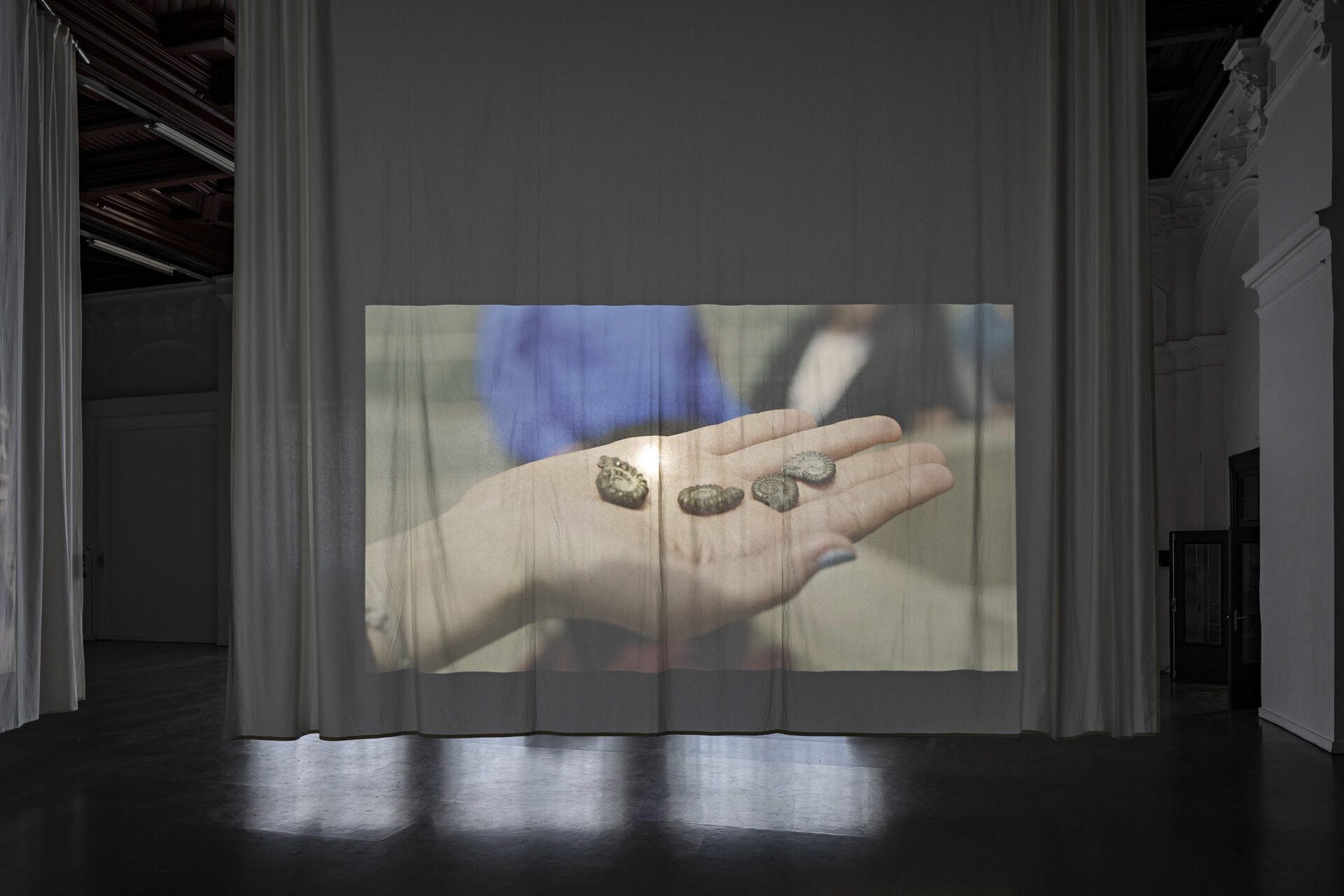
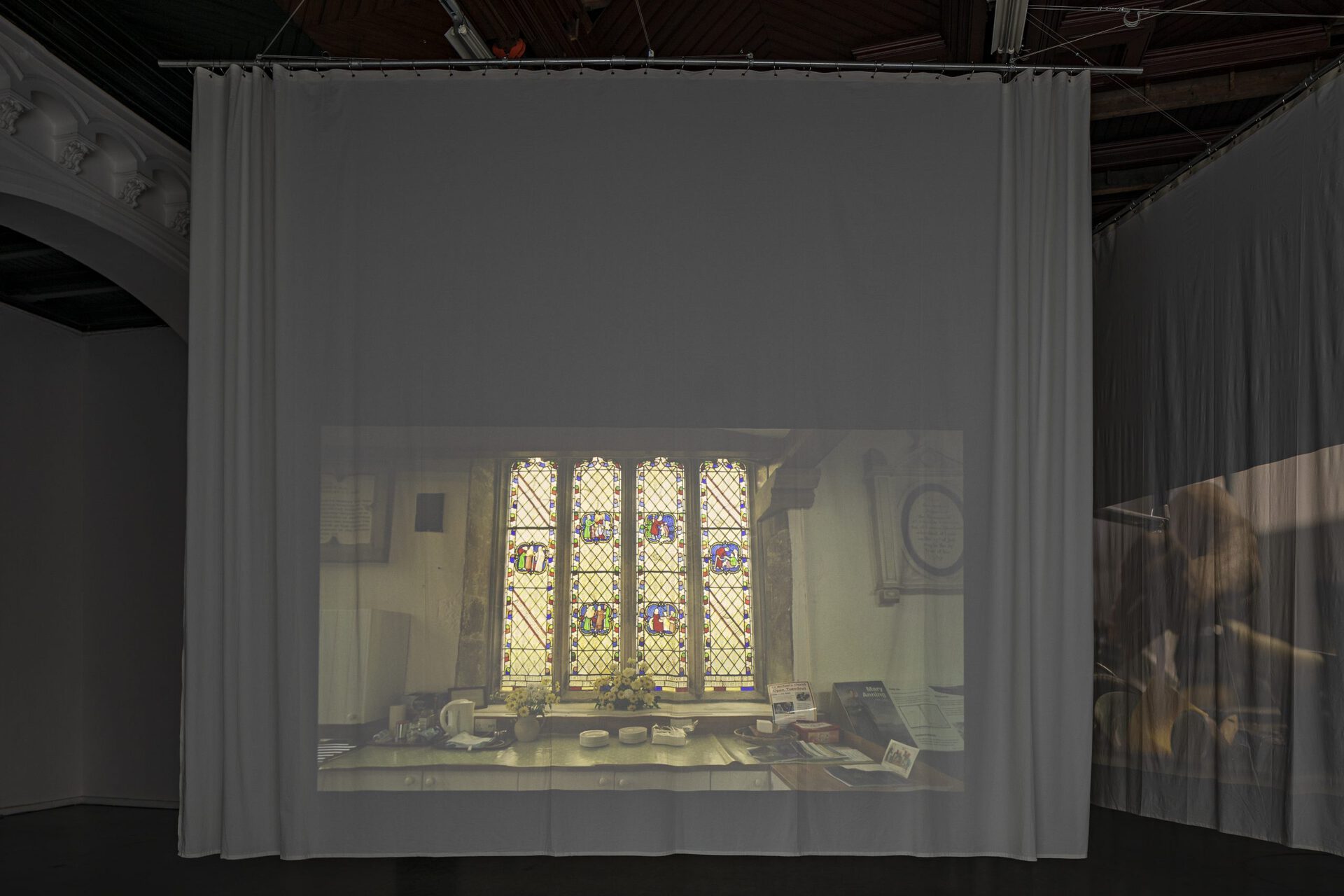
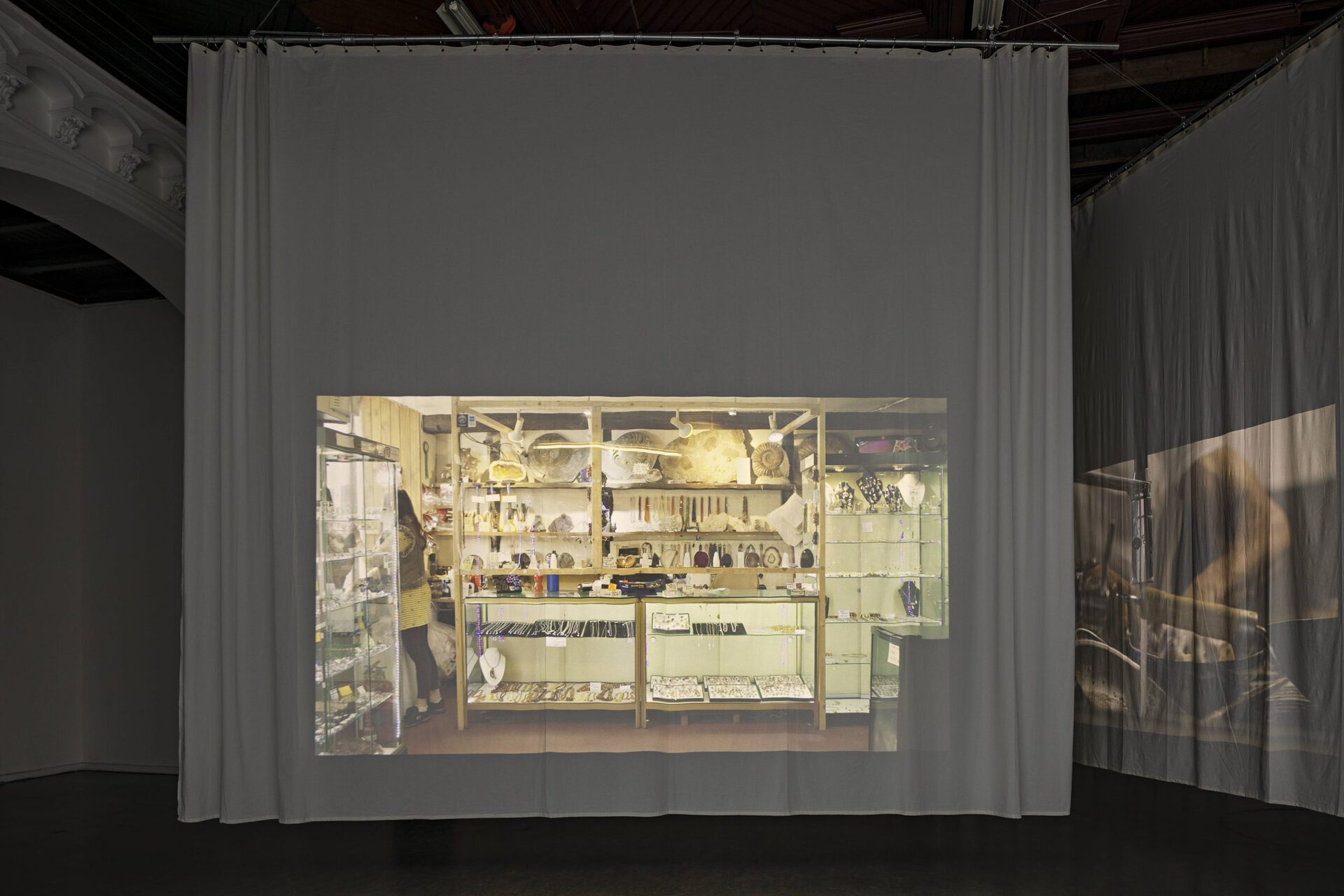
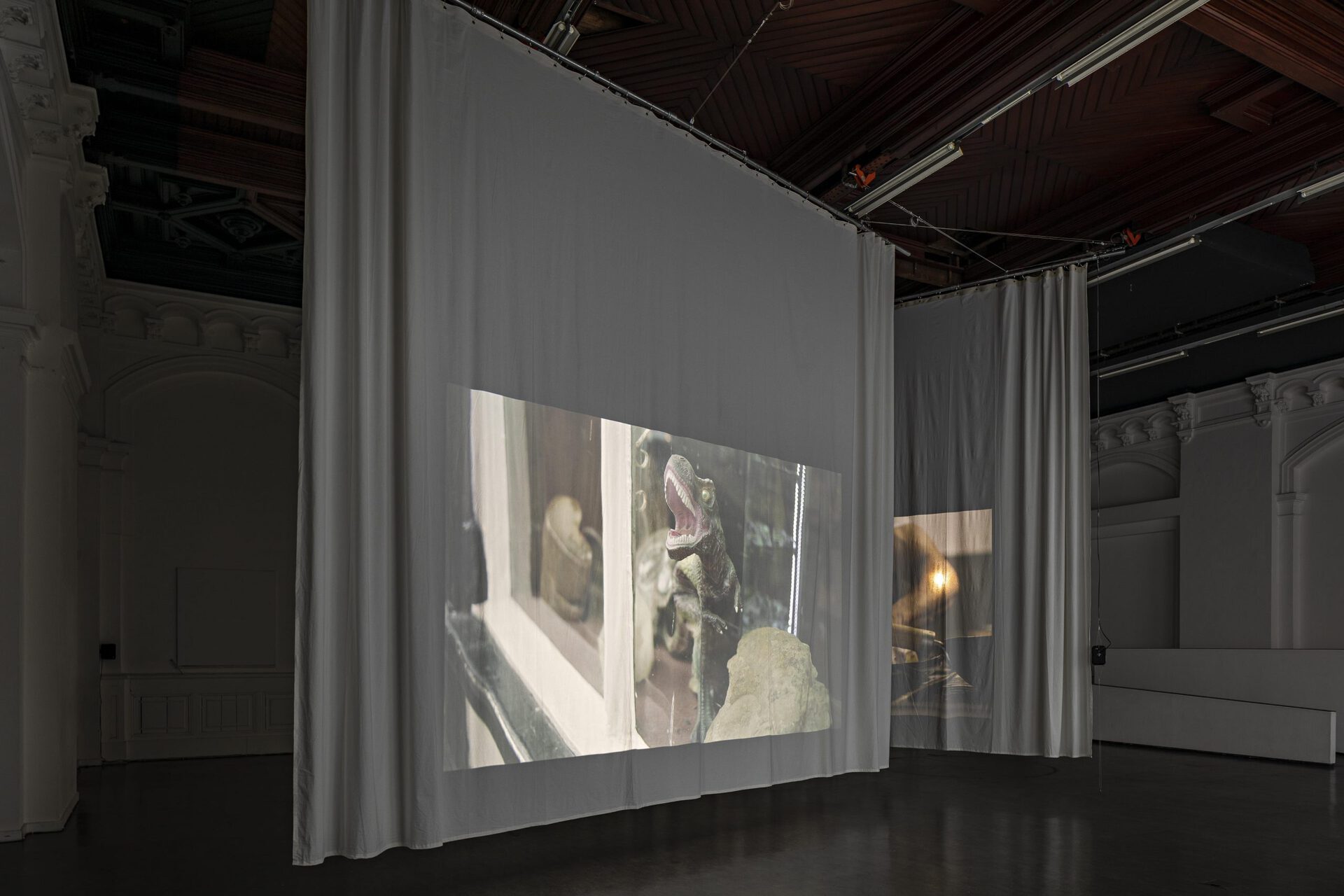
Location
Kunstverein Harburger BahnhofDate
03.06 –13.08.2022Curator
Tobias PeperPhotography
Fred DottSubheadline
The Kunstverein Harburger Bahnhof is pleased to present the first institutional solo exhibition by Nina Kuttler. In videos, sound, text and sculpture, the artist combines cultural knowledge and mythologies with historical approaches to natural sciences as well as contemporary research methods.Text
Nina Kuttler's exhibition at the Kunstverein traces two pioneers in the history of science who struggled for recognition during their respective lifetimes, despite having established fundamental insights that remain valid today. The German physical chemist Agnes Pockels and the British paleontologist Mary Anning both grew up at a time when access to the scientific-academic establishment was reserved for men. Pockels made essential discoveries about the surface tension of liquids when washing up. Mary Anning discovered the first complete skeletons of two marine dinosaurs while searching for fossils on the beach to sell to tourists. The two stories exemplify women who have shaken up social structures and belief systems and challenged the way knowledge is generated and ultimately recognized.
List of Works
The Surface Measured, 2022
Radio play, 25 min.
Agnes Pockels (1862 - 1935) was a German physical chemist and the first woman to be awarded an honorary doctorate. Despite her interest in science, Pockels gave up her studies in order to care for her sick parents and run the household after graduating from highschool. While washing dishes, she discovered the different effects of oil, soap and other household chemicals on the surface tension of water. Disregarded by German scientists, Pockels shared her observations with the British physicist John William Strutt, the 3rd Baron Rayleigh. The latter helped Pockels get her first scientific publication in the journal Nature, where Pockels published her seminal paper entitled Relations Between the Surface-Tension and Relative Contamination of Water Surfaces. A year later, the self-taught scientist developed the "sliding trough" which is still used today to examine the surfaces of liquids. In Kuttler’s radio play The Surface Measured, text fragments from Pockels' essay are repeated and seem like a scientific analysis of washing up and the phenomena of changing surface tensions that can be observed in the process. Four female voices read the texts, interrupt one another, complement each other, rise to a chorale, and then speak again as a solo. They are accompanied by jingling dishes and the sounds of splashing water and bursting soap bubbles.
Voices: Lara Agar, Lily Henley, Georgia Thompson, Nina Kuttler
Sound recording & editing: Louis d’Heudières, Nina Kuttler
The Tension Measured, 2022
HD video, 20 min.
The work The Tension Measured is also based on Agnes Pockels' biography, a story which is not an isolated case. To this day, the so-called "Matilda Effect" is known to describe the phenomenon that female research achievements, especially in the field of natural sciences, are often less recognized than those of their male colleagues or even attributed to male scientists. Matilda Joslyn Gage wrote about the bias against women as early as 1870 in her essay Woman as Inventor. Especially in times when access to the academic system was very difficult, if not impossible for women, their scientific work was dismissed as a mere hobby. This is also due to the fact that the spirit of discovery was inevitably related to the domestic environment, since a career as a female scientist was almost out of the question. Even today, such a tendency towards an occupational separation is recognizable, in academia as elsewhere in the career path, where certain activities still have strong gender attributions. In Kuttler's film, we encounter a professional bodybuilder in a commercial kitchen, working his way through a mountain of dishes. The extremely muscular body, pumped up to conform to a hyper-masculine ideal, seems at times out of place when handling dishes. In the playful conjunction of this video and the sound of the audio installation, Pockels' insights into surface tension, which she herself acquired while washing dishes, comment on the housework in the film.
DOP: Christophe Trarieux
Performer: Medhat Alkhawaga
Production assistant: Georgia Thompson
Sound recording & editing: Nina Kuttler
Editing: Nina Kuttler
Measuring the Curve of the Tail, 2022
HD video, 20 min.
The footage for the film Measuring the Curve of the Tail was shot in Lyme Regis, a small coastal town in the south of England on the "Jurassic Coast". This is the birthplace of Mary Anning (1799 - 1847), one of the first female paleontologists, who made a spectacular find at the age of 12: the first completely preserved skeleton of an ichthyosaur, a fish dinosaur. Fossil collecting became en vogue as a leisure activity in the late 18th century and its relevance to findings in geology and biology was only recognized later on. Anning initially collected fossils to sell to tourists and to supplement her family's meager income. Similar to Pockels, Anning never had the opportunity to enjoy a scientific education. Nevertheless, she was able not only to draw her finds precisely, but also to describe and classify them. Anning never published her findings and insights in academic publications, however, she maintained a lively correspondence with members of the Royal Society and London socialites she met during their visits to Lyme Regis. In addition to correspondence about her fossil discoveries, the letters contain personal reflections. Anning was a religious woman and a member of the English Dissenters, a breakaway group from the Church of England. Anning questioned the traditional subordinate role of women in the church. Her fossil discoveries were also important evidence of species extinction and an age of the earth of well over 6000 years. Both facts were not recognized by the Church at the time. In other letters, Anning comments in frustration upon her financial situation and the fact that her discoveries were well known, but she herself felt forgotten and exploited by the world. The class system of her time already made access to education and academic recognition impossible. Kuttler punctuates her film with excerpts from Anning's letters, her only preserved notebook entitled Woman!, and the church hymn O Thou My Soul, Bless God the Lord, while the camera captures Mary Anning's resonant presence in Lyme Regis, a place that is now a magnet for tourists in part because of its famous former resident. Anning herself was quickly forgotten after her death. Only in the past few decades has she been rediscovered as an extraordinary paleontologist who challenged her world scientifically and socially.
DOP: Huw Crowley
Sound recording: Louis d’Heudières
Video & sound editing: Nina Kuttler
Musical arrangement: Louis d’Heudières
Thank you: Georgia Thompson, Anna Schwarz, Chris Andrew, Lyme Fossil Shop, Lyme Regis Museum
The exhibition is supported by the program NEUSTART Kultur: Förderung von Kunstvereinen.
The program of the Kunstverein is made possible by the Ministry of Culture and Media of the Free and Hanseatic City of Hamburg, and the Liebelt-Stiftung, Hamburg.
Kunstverein Harburger Bahnhof